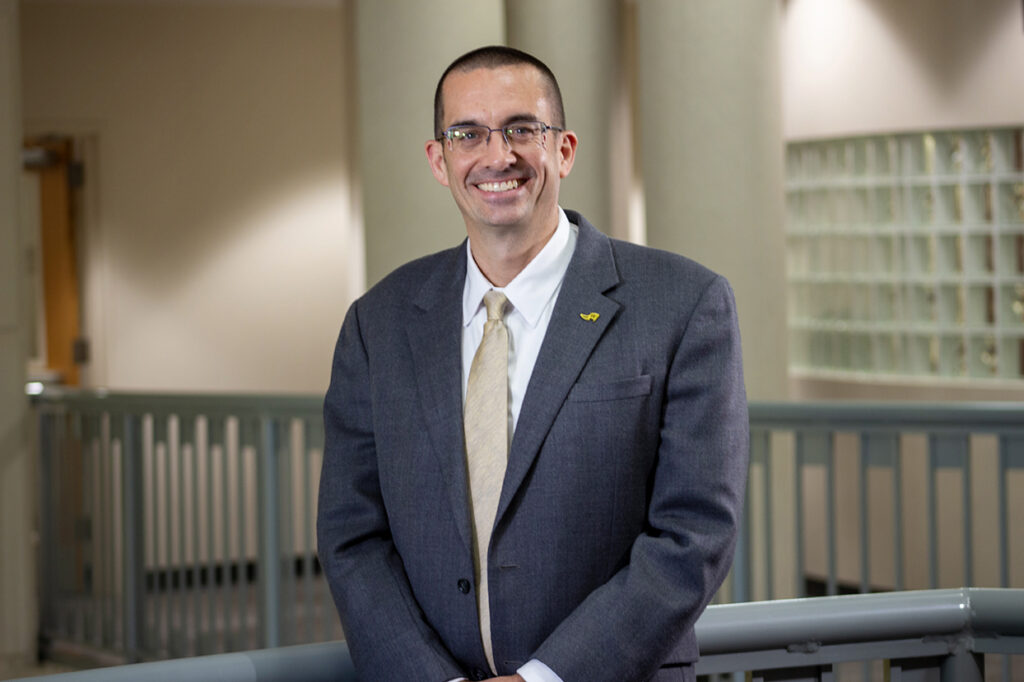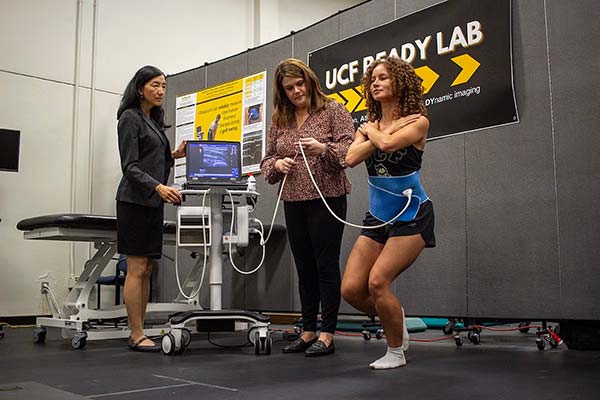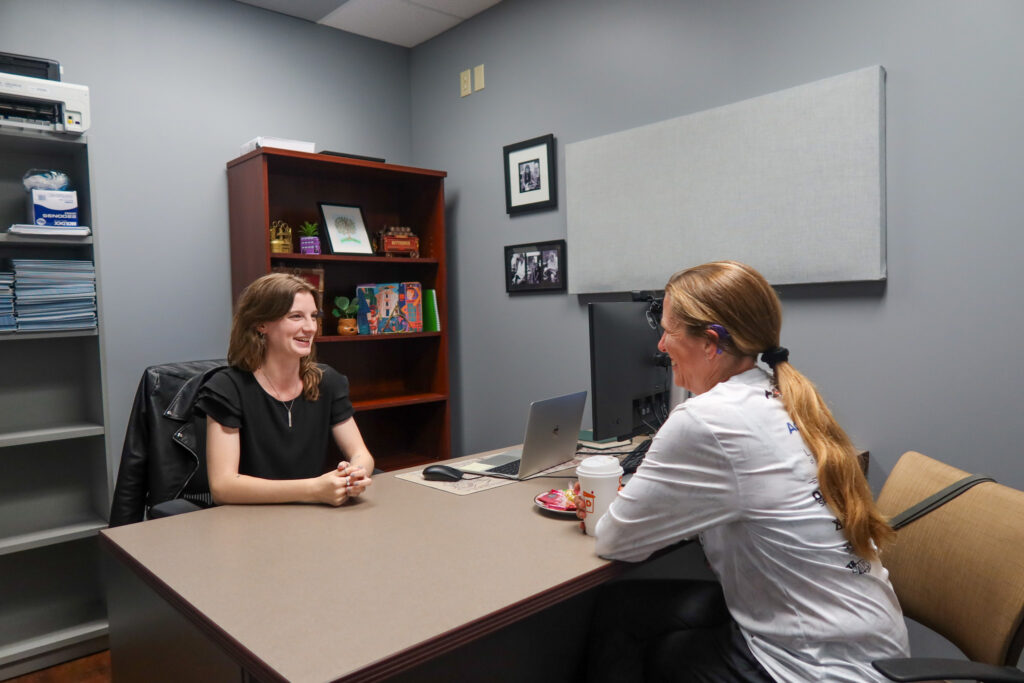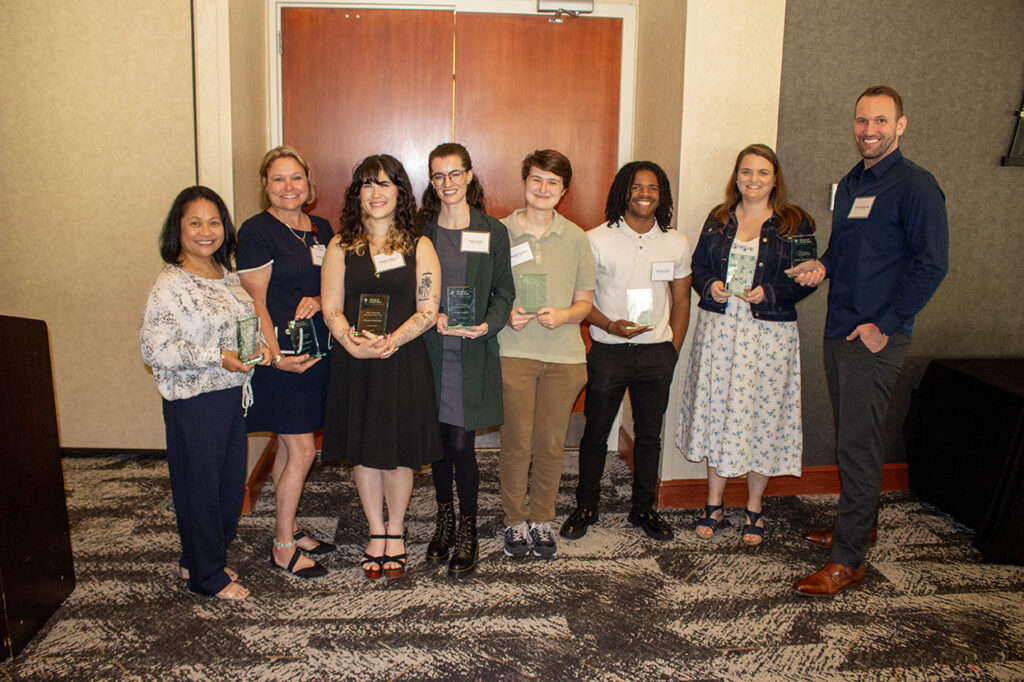
The Center for Behavioral Health Research and Training (CBHRT) was established in 2017 and is the first of its kind in the School of Social Work. The CBHRT serves a unique purpose to link practitioners and agencies with university researchers to conduct relevant and timely behavioral health evaluation and intervention research.
Led by co-directors Associate Professor Kim Gryglewicz and Assistant Professor Susanny Beltran, the Center’s ultimate mission is to expand access to social work experts and fuel scientific discovery in evidence-based prevention and clinical- and population-based research. “By working with community partners, and collaborating across different research disciplines, we hope to expand our impact within behavioral health,” said Gryglewicz who has been with the CBHRT since its inception.
“By working with community partners, and collaborating across different research disciplines, we hope to expand our impact within behavioral health,” said Gryglewicz.
Interprofessional Collaboration
One of the CBHRT’s initiatives is a seed program that seeks to support behavioral health research across disciplines in the Academic Health Sciences Center. Through this competitive program, the CBHRT selects interdisciplinary teams to receive $5,000 per project that show potential for developing into large-scale studies.
The most recent project funded will explore overlapping preventative knowledge, attitudes, and practices among Latino men who have sex with men that have been afflicted with both, cardiometabolic syndrome and Coronavirus.
“This study is a collaboration between UCF Health Sciences, Social Work, and Nursing faculty, and an MSW graduate student and an alumnus from the Health Sciences program.” The CBHRT funding helped start preliminary analyses of topic data, which to date shows a trend of cardiovascular disease and the need to explore evidence-based, culturally appropriate interventions,” said Health Sciences Assistant Professor Humberto López Castillo, the principal investigator of the study.
Community Innovation
Research conducted through the CBHRT aims to provide results that serve as guidelines and resources for the greater community. One such study focused on encouraging school-aged youth, with autism spectrum disorder (ASD) to increase their physical activity levels by using a fitness tracker for 12 weeks.
“Teachers of students who participated in the program reported that the technology motivated students to achieve more physical activity and was socially engaging because students were interested in tracking their daily steps through friendly competition and ‘scorekeeping’ with their peers!” said Garcia.
“Teachers of students who participated in the program reported that the technology motivated students to achieve more physical activity and was socially engaging because students were interested in tracking their daily steps through friendly competition and ‘scorekeeping’ with their peers!” said Jeanette Garcia, Health Sciences associate professor and principal investigator of the study.
Research like this means more than data – it creates a solution that supports the healthy development of children. “The majority of youth with ASD tend to have a highly sedentary lifestyle. The discovery of a feasible and enjoyable physical activity program for a population that typically avoids physical activity would be a much needed resource,” said Garcia.
Advancing Research
Not only does the CBHRT foster research across faculty, and in the community, it also values the importance of professional development of students, and supports many graduate (GRA) and undergraduate research assistants across varying disciplines.
Online Master of Social Work student, Serenea Vinci, was able to virtually collaborate with faculty on research by working as a GRA for the CBHRT. “I have been able to work alongside Dr. Kim Gryglewicz on some great grant-funded research. It’s exciting to learn from an expert who is not only passionate about the research, but also the results,” said Vinci.
Along with her experience with SPSS data entry, and analysis of quantitative and qualitative data, Vinci had the opportunity to co-author publications and will be undertaking a literature review for an upcoming publication.
The CBHRT will continue to expand its reach and efforts, thanks to a recent gift of $20,000 by an anonymous donor who seeks to improve health outcomes by translating behavioral health theory and research into practice. The gift will support further research in important areas, such as treatment for veterans with PTSD and suicide prevention.
If you’re interested in collaborating with the CBHRT on research and/or training, fill out this form.







